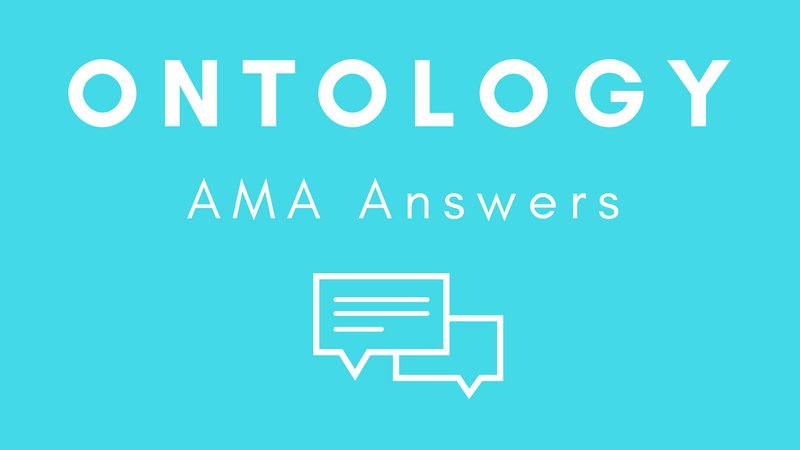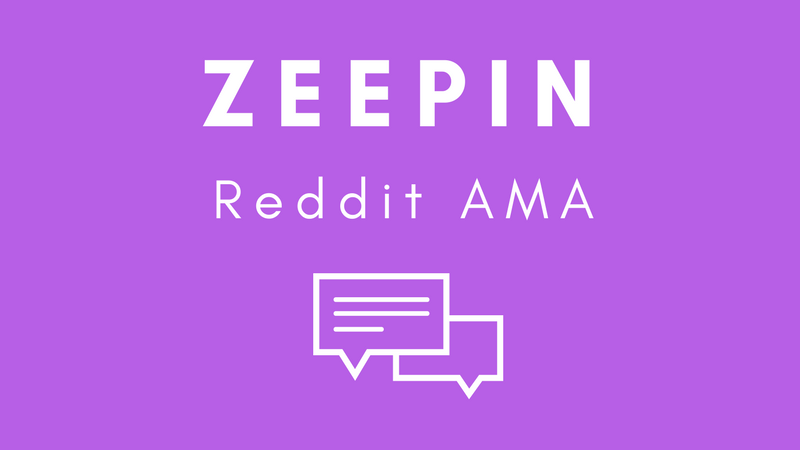
Distributed trust network, Ontology, have posted answers to AMA questions collected on the NEO subreddit. Users were invited to participate in the AMA to gain further clarity about the relationship between Ontology and NEO. You can view the questions and answers below, or visit the link here – https://www.reddit.com/r/NEO/comments/7f8bvb/ontology_network_ama_answers/
ONTOLOGY NETWORK
How would the reputation system for tackling misinformation work on a blockchain?
The reputation system is just one method of evaluation, we need multiple standards to create a complete system for addressing the problem of misinformation. Ontology will in the future have different rating systems using different information to evaluate different entities. All information to support the rating systems should be recorded with proof of evidence from relevant sources, which should then be verified (or refuted) by others, provided with relevant evidence.
Do you foresee a future where the Ontology replaces the use of passports?
Since Ontology will be a connector for different verification systems, including government passport systems, it’s technically possible. Ontology can be used as an integrator for different e-ID systems, so can actually build more elaborate identity profiles that a passport alone.
What are the exact functions of the Ontology tokens? Is ONT a utility token or it is an asset that produces reward (for example with NEO where it gives GAS)?
Because business scenarios on Ontology are expandable, Ontology token use is not confined. However, in the initial phase the ONT token can be used as a service fee for different business scenarios. In the current design Ontology will have two tokens; one is for governance and the other functions similarly to NEO’s GAS. The governance token will be used in Ontology governance decision making and the GAS-like token will be used for service fees, including running business scenarios/smart contracts on Ontology. Ontology smart contracts will mostly focus on business process control, other token clearing/settlement will be done by other systems such as NEO. As more business scenarios run on Ontology we will be able to find more ways to use the ONT tokens.**
Can you give a practical application use of Ontology?
When doctors, hospitals, and patients register their identities onto the blockchain, the blockchain fills in the trust gap between the pharmacy and patient with the records of the medicine’s key information and proof of authenticity. The pharmaceutical enterprise then sells the prescribed medicine to the patient after verification of the doctor and hospital’s credentials. You can find a graphic which illustrates this on page 19 of the introductory white paper.
Will Ontology have its own complete chain or will it fork from NEO or another chain?
Ontology is a network for chains using protocols and APIs. Ontology has its own public core ledger (not forked) that acts as a connector/mapping list for identity, data, and other information.
ONTOLOGY & NEO
In the white paper it says “Ontology has infrastructure platforms to support dApp development for different scenarios”. In the case of supply chain for example, why would the dApp not be made on NEO?
There are three major reasons why Ontology needs to have its own blockchain/s and not live on NEO as a smart contract. The first reason is due to the nature of Ontology’s business scope – identity and data. It’s too big a leap of faith for business, financial institutions, and governments to use NEO (or Bitcoin, Ethereum) to store sensitive identity information, let alone to be compliant with laws and regulations designed for pre-blockchain world.
The second reason is that identity services generally require high throughout and low latency. It is not economical and scalable to use NEO as an identity service for each and every scenario. This is also why Ontology is designed as a network of blockchains, not one single blockchain. The multiple interoperable blockchain network design makes Ontology highly scalable and each blockchain can adopt independent governance model to be compliant in its own jurisdiction.
Ontology works as an index of identity and data. Applications can choose to run business logic smart contract on Ontology or NEO. Some applications may not be built as a smart contract but as a traditional IT system by simply accessing Ontology’s business-oriented APIs. That’s the third reason why Ontology needs an independent network.
Can you explain how NEO contracts will be used in Ontology? What value does Ontology bring to NEO investors?
NEO focuses on digital asset services with smart contracts, including token usage linked to business scenarios. Also, when businesses that run on Ontology need to perform a token sale, NEO can provide the token system.
Ontology can also be the link between NEO and non-token based business scenarios. For example, if the bank needs digital asset services, Ontology can be the connector between NEO and banks (or other businesses).
Will the Ontology tokens be built on top of the NEO blockchain? Will the NEO or GAS token in any way be used for interacting with Ontology? Will the presale/token distribution be on NEO blockchain using NEO token?
Ontology token sale distribution will accept NEO tokens, however the Ontology token mechanism has not yet been confirmed. NEO and GAS can be used on Ontology for different business scenarios.
What’s the difference between “digital identity” and “trust identity”?
Ontology’s “trust identity” is a connector/mapping list for “digital identity” services, including NEO ID, which can help NEO ID link to more business scenarios.
Does Ontology have an exclusive contract with NEO regulating the partnership and responsibilities? Is there a roadmap of what Ontology and NEO aim to accomplish through their partnership?
NEO will be the primary digital assets service provider for clearing and settlement on Ontology. There is no contract between Ontology and NEO now, though Ontology and NEO already have an established partnership. One thing on the roadmap is that in the future business scenarios on Ontology want to hold ICOs they will be able to on NEO.
Can we expect NEX, Ontology, and ProjectICO to work together to make a trusted exchange with digital identity and the ability to run an ICO directly on the exchange?
In a technical sense that is possible! We hope to make many exciting collaborations through Ontology.
Can you provide one case where NEO, GAS, Ontology, DNA, THEKEY, and NEO ID interact together? There needs to be a strong vertical integration between them to justify the Ontology architecture.
NEO ID/THEKEY can be ID service providers on Ontology, and NEO/GAS can be used for clearing/settlement scenarios – in some cases ID verification will be a requirement for execution of a smart contract. DNA, however, is just a framework, not a platform. ONT’s ledger is an enhanced version based on DNA.
ONTOLOGY & OTHER SERVICES
How does Ontology relate to THEKEY? Are they direct competition?
Ontology is a connector/mapping list for identity services. THEKEY can be one of the identity service providers to Ontology. So in that sense they are mutually beneficial, not direct competition!
Does Ontology have plans to have an API-compatible layer/web3 integration into the network?
Ontology will provide multiple protocols/API interfaces, including web3, in the future.
COMPLIANCE
Will Ontology be compliant to regulations in China? How can Ontology assure investors of the risk in the crypto/blockchain space in China?
Yes. Business scenarios run on Ontology will be legally compliant in both China and other regions. We use a chain network model to support this; different chains can follow different governance models and follow different rules and regulations.
Ontology will be an open community project and token sales will not be open for individuals in Mainland China, though they will be free to build business scenarios on Ontology.
OTHER
“Regarding Fosun, they have invested solely in Onchain. Onchain is for-profit and NEO non-profit. Fosun logically wants to see return on its investment, so it is in their interest to have Onchain make revenue and profits, potentially by shifting Da Hongfei’s time and focus, as well as shared knowledge and resources to Onchain rather than NEO, while having the decision-making power through the equity they own to actually act upon these interests. They have not much interest in success of NEO as far as I’m aware. NEO shareholders on the other hand don’t have any decision power or legal claim on profits, so we are fundamentally subordinated to Fosun. Am I right to assume this is a first example of Fosun/Onchain executing their decision power and claiming a part of the ecosystem to benefit Onchain rather than NEO? Doesn’t this imply a clear conflict of interest between Fosun/Onchain and NEO with Da Hongfei in the middle?“
Fosun is a strategical investor. Although Onchain/Foson have no direct interests in NEO, Onchain shareholders are clearly aware that Onchain will not succeed without NEO’s success. The mission of Onchain is never to take NEO’s market share but to foster the ecosystem and benefit in return. NEO is a permissionless open network. Enterprises, financial institutions, and government agencies always hesitate to connect to open networks due to secrecy, privacy, and regulatory concerns. Onchain and Ontology can act as a buffer, connecting mainstream business and NEO network.







About The Author: Dean Jeffs
Dean is a digital project manager who has worked extensively with start ups and agencies in the marketing space. Fascinated by the potential applications of blockchain technology, Dean has a passion for realising the new smart economy.
More posts by Dean Jeffs